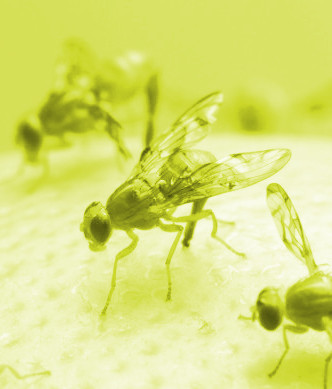Flies show rejection aggression
 Being rejected by a potential mate is stressful for male fruit flies, research suggests.
Being rejected by a potential mate is stressful for male fruit flies, research suggests.
In a study that highlights the complexity of animal behaviour, male fruit flies have been shown to exhibit significant stress and frustration following repeated rejections by potential mates.
Male fruit flies (Drosophila melanogaster), known for their persistent courting behaviours, were subjected to an experimental setup where their advances were consistently spurned by uninterested females.
The study compared their responses to those of males that had successfully mated and those that had no contact with females.
According to the findings, the rejected flies demonstrated increased activity, aggression, and a notable decrease in social interactions with other males, signalling a state of frustration and stress.
Julia Ryvkin at Bar-Ilan University and her colleagues report that these behaviours are not just mere reactions but also have significant implications for the health and survival of the flies.
The study revealed that the rejected males exhibited decreased resilience to starvation and exposure to toxic herbicides, suggesting that the stress of rejection could have far-reaching effects on their well-being.
At the heart of this response is the neuropeptide F signalling system, a crucial component in the brain's reward and stress pathways.
By manipulating this system, the researchers were able to mimic the effects of rejection, further highlighting its role in mediating the stress response.
Activation of neuropeptide F receptor neurons, in particular, was found to diminish the flies' ability to withstand starvation, underscoring the physiological impacts of social stress.
The research not only sheds light on the social stresses experienced by male fruit flies but also offers a unique perspective on the broader implications of failure and rejection in the animal world.








 Print
Print